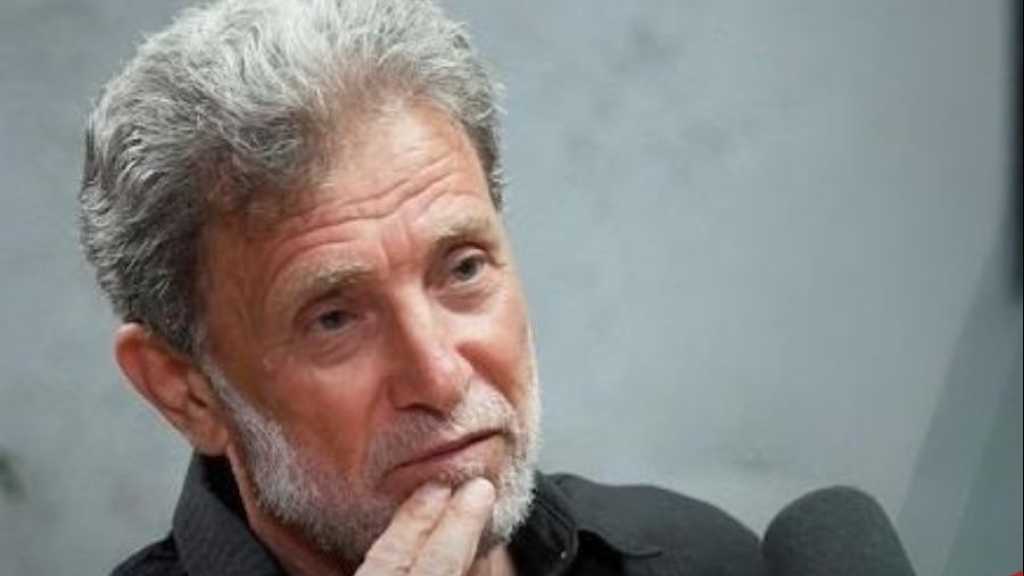Nael Barghouti to Al-Ahed: Lebanese Resistance The Nation’s Shield and Palestine’s Pillar

By Mustafa Awadah
From the olive-covered hills of Kobar, north of Ramallah in occupied Palestine; a small village that witnessed generations of steadfastness, emerged a nineteen-year-old youth named Nael Barghouti, carrying the dream of freedom and the rifle of Resistance.
Barghouti did not know that his age would stop at forty-four, behind the walls of "Israeli" prisons, yet he was fully aware that occupation could never take a person’s soul as long as he remained devoted to his cause.
Today, after decades of captivity, Nael returned to his village, which still preserves the features of his childhood, carrying a new message: Freedom is built through patience, and Resistance is an inevitable destiny.
Liberation, Freedom, and Dignity: One Inseparable Equation
In an interview with Al-Ahed News, Barghouti recalled his early days of national activism: “Everything I have mentioned, liberation, freedom, dignity; is a single bundle. The occupied people lose their dignity when they lose their freedom, and one who loses freedom loses dignity. That is why we chose the path of Resistance, because we want to remain free in a free homeland.
He added “The occupation wanted to kill our dream, but we turned prison into a space for cultivating awareness. We are imprisoned because we love Palestine, and we will continue to love it more than they fear us.”
From the Cells of Captivity to Universities of Awareness
For Nael Barghouti, "Israeli" prisons were never merely walls of concrete and iron; they were schools of revolutionary awareness. He described: “Inside the prisons, we established something like national universities. We taught history and politics, exchanged books in secret, discussed Palestine’s future, and subjected the enemy to a battle of willpower.”
He went on saying: “Hunger strikes were not just to improve conditions, but declarations that we are alive and resisting even in chains. In every cell, a fighter of thought was born, a poet of stance, and a fighter in action. This is the real Palestine that occupation cannot detain.”
The Lemon Tree: A Symbol of Memory and Loyalty
One of the stories most closely associated with Nael Barghouti is that of the lemon tree his mother planted in Kobar. Smiling, he said: “From inside prison, I asked my mother to plant a lemon tree near our home and water it on every visit with water I sent from prison, along with a handful of soil from every detention center I passed through. After decades, the tree grew, and when I was released, I ate its fruit.”
He added, “I felt I had eaten from the soul of the homeland, from our pain, patience, and blood. I planted the lemon tree to plant hope, and to say that the roots of Palestine will never die no matter how hard they try to uproot them.”
Gaza: The Banner of Human Dignity
Barghouti expressed deep admiration for the steadfastness of Gaza, which he calls “The living conscience of the world”: “Today, Gaza writes the holiest chapters of human history. Its children, starving under bombardment, and its women, sending their sons to martyrdom, have redefined dignity in an era when humanity vanished. Gaza is besieged today because it said no, because it refused to live kneeling.”
He emphasized, “The blood flowing in the streets of Gaza is the same blood that flowed in Jenin, Nablus, and South Lebanon. It is one battle, one battlefield, and one enemy.”
Palestinian Division: Between Resistance and Compromise
Barghouti stressed that “the real Palestinian division is not political, but rooted in values and principles, and it is not between Gaza and the West Bank, but between those who resist and those who compromise, between those who recognize the occupation as an enemy and those who see it as a partner.”
He continued, “The world talks to us about international law and human rights, but we know that this law is blind to our blood. Without Resistance in Palestine and Lebanon, no one would have mentioned law or justice. We create legitimacy with our blood, not through resolutions or the United Nations.”
A Message to Resistance in Lebanon
In his message to our website, Barghouti paid tribute to the Resistance in Lebanon: “To our brothers in the Lebanese Resistance, to the men of the South who stood against the machinery of Zionist war, I say: You are the pride of the Nation, its shield, and the pillar of Palestine. We followed you from our cells, waiting for news of your victories as we wait for the sunrise.”
He added, “When you liberated the South in 2000, we felt that Palestine’s gate had been reopened, and when you stood firm in the July 2006 war, our certainty grew that the era of defeats had ended.”
Barghouti concluded his message with words that summarize decades of patience and steadfastness: “We and you walk the same path, complementing each other in one battle, and every bullet fired from the South is for Palestine, and every drop of blood spilled in Gaza is also Lebanese. And just as the supreme martyr Sayyed Hassan Nasrallah promised divine victory in Lebanon, we shall witness it soon in Al-Quds.”



